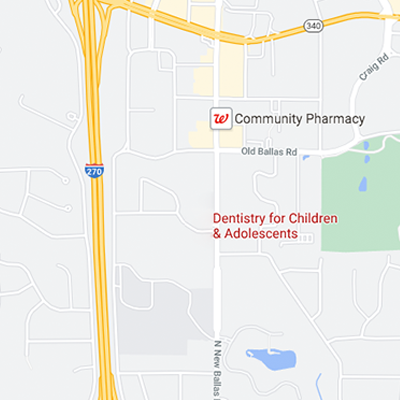Go Green for St. Patrick’s Day
March 15th, 2023

Millions of people, around Creve Coeur or St. Charles and beyond, wear green on St. Patrick’s Day so they can show their spirit for the holiday and avoid getting pinched. While it may be easy for you to throw on a green shirt, sport a St. Patrick’s Day button, or wear a pair of emerald-hued shoes, if you’re an avid St. Patty’s Day enthusiast you may want to try something different this year. Dr. Varble, Dr. Dill, Dr. Wong, and Dr. Parks thought of a few ideas that will help you take your holiday spirit to the next level:
Visit Chicago’s Green River
If you happen to be near the Windy City during St. Patrick’s Day or you’re thinking of planning a trip, don’t miss out on going downtown to watch the large-scale celebration that kicks off when the city dyes the river bright green. According to the Chicago Sun-Times, Chicago has been celebrating the holiday with this tradition for more than 50 years, with tens of thousands of people gathering annually to witness the mysterious dying process and the stunning result.
Don Green Face Paint
Just like an avid sports fan on game day, you can use green face paints to showcase your enthusiasm for this holiday. Avoid breakouts or allergic reactions by only using paints that are specifically meant to be applied to the skin. A little bit of face paint can cover a large area, so feel free to get creative and decorate the whole family on St. Patrick’s Day.
Eat Green All Day
Not a fan of green eggs and ham? With the increasing popularity of green smoothies, there’s no better time to get in on this health craze. To create a green smoothie without the aid of food coloring, you can simply blend a generous amount of a leafy green vegetable, such as spinach or kale, with the ingredients that you would typically use to make a smoothie, like fruit, ice, milk, or juice. Keep the trend going throughout the day by using those same vegetables to create a green soup, egg salad, or a batch of bright green pastries. As an added bonus, you’ll get a healthy dose of vitamins without changing the taste of most of these foods.
If your old holiday routine has gotten stale, leave your green T-shirt in the drawer and try one or all of these tips. Don’t be surprised if you have so much fun that you decide to start a new, annual St. Patrick’s Day tradition! Have a happy St. Paddy’s day from Dentistry for Children!






